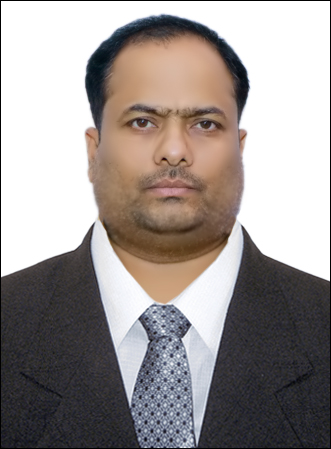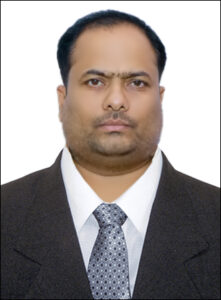Overview
The Department of Pharmacy Practice was established in Channabasweshwar Pharmacy College (Degree), focusing on practically applying pharmaceutical knowledge and skills. The department typically comprises faculty members who are experienced pharmacists with a broad range of expertise in various aspects of pharmacy practice. The primary objective of the Department of Pharmacy Practice is to prepare students for professional practice as pharmacists. To achieve this objective, the department provides training in areas such as therapeutic drug monitoring, medication therapy management, patient counseling, drug information, pharmacoeconomics, and pharmacotherapy. In addition to its teaching responsibilities, the Department of Pharmacy Practice also engages in research activities related to improving the quality of patient care, advancing the science of pharmacy practice, and evaluating new drugs and treatments. Faculty members in the department publish their research findings in academic journals, present at national and international conferences, and collaborate with other healthcare professionals to improve patient outcomes.
The Department of Pharmacy Practice also plays a vital role in promoting community outreach and service. Many departments offer programs and services that promote public health, such as health screenings, medication education, and immunization clinics. This allows students to gain hands-on experience in providing care to underserved populations while also enhancing the reputation of the department and institution.
Goal
The main goal of the Department of Pharmacy Practice is to advance the practice of pharmacy through research, education, and service. This may include:
- Conducting research to improve medication use, patient outcomes, and healthcare
- Providing education and training to student pharmacists, residents, and practicing pharmacists to enhance their clinical skills, communication, and leadership abilities.
- Collaborating with healthcare providers to optimize drug therapy management and promote interprofessional teamwork.
- Engaging in community outreach and public health initiatives to promote safe and effective medication use.
- Interdisciplinary focus: The Department of Pharmacy Practice often involves collaboration with other healthcare professionals, such as physicians, nurses, and other pharmacists, to provide quality patient care and improve health outcomes.
- Evidence-based practice: The department emphasizes the use of evidence-based approaches in pharmacy practice, including the evaluation of medication therapies, the analysis of clinical data, and the review of published research.
- Clinical training: The department provides students and practicing pharmacists with hands- on clinical training and experience in various healthcare settings, such as hospitals, clinics, and community pharmacies.
- Research focus: The department conducts research to advance the practice of pharmacy and improve patient care outcomes, including evaluating medication therapies, analyzing health policies and outcomes, and developing new approaches to pharmaceutical
- Professional development: The department promotes professional development among its faculty, staff, and students through ongoing education, training, and certification programs.
- Community engagement: The department engages with the local community by providing outreach services, such as health screenings, medication reviews, and patient education

| Name of the faculty | Dr. Shivakumar S. Ladde |
| Designation | HOD & Professor |
| Qualification (Specialization) | M. Pharm (Pharmacology) Ph.D |
| Name of the Department | Pharmacy Practice |
| Date of Joining | 03/02/2019 |
| Bachelor Degree(B.Pharm) | Karnataka College of Pharmacy, Bidar |
| Master degree (M.Pharm) | V. L. College of Pharmacy, Raichur |
| Ph.D. | Swami Ramanand Teerth Marathwada Universtiy, Nanded |
| Area of Research | Preclinical, Clinical Studies, Drug Toxicities, In-silico Studies |
| Date of Birth | 02/08/1979 |
| Blood Group | B+ |
| Mail ID | shivkumarladde@gmail.com |
| Contact | 9970991341 |
 | Name: Dr. Shivkumar S. Ladde Designation: HOD & Professor Qualification: M. Pharm., Ph. D |  | Name: Dr. Tanpure Anjali Venkatrao Designation: Assistant Professor Qualification: Pharm D |
 | Name: Dr. Anamika Sudhir Patne Designation: Assistant Professor Qualification: Pharm D |  | Name: Dr. Kulkarni sachin shankarrao Designation: Assistant Professor Qualification: Pharm D |
 | Name: Dr. Kelgaonkar Prajakta Nandkishor Designation: Assistant Professor Qualification: Pharm D |
Trust Area:
- Clinical pharmacy: This involves using pharmacotherapy knowledge to optimize medication use and improve patient outcomes. Clinical pharmacy may encompass areas such as drug therapy management, medication safety, and pharmacogenomics.
- Pharmacoeconomics and outcomes research: This area focuses on evaluating the economic impact of medications and interventions on healthcare systems and patient outcomes.
- Health services research: This area explores how healthcare systems and policies impact medication use and patient outcomes.
- Interprofessional education and practice: This area promotes collaboration and teamwork among healthcare professionals to improve patient care.
- Medication safety: This area focuses on identifying and preventing medication errors and improving medication safety practices.
- Public health and population health: This area examines how medications and healthcare interventions impact community health and well-being.
Research Areas:
- Medication therapy management: This area involves developing and implementing strategies to optimize medication use and improve patient outcomes.
- Health outcomes research: This area explores the impact of medications and interventions on clinical outcomes, patient quality of life, and healthcare costs.
- Pharmacoepidemiology: This area focuses on studying the use, effectiveness, and safety of medications in large populations.
- Pharmacoeconomics: This area evaluates the economic impact of medications and interventions on healthcare systems and patient outcomes.
- Patient safety: This area focuses on identifying and preventing medication errors and improving medication safety practices.
- Health services research: This area examines how healthcare systems and policies impact medication use and patient outcomes.
- Interprofessional education and practice: This area promotes collaboration and teamwork among healthcare professionals to improve patient care.
- Public health and population health: This area explores how medications and healthcare interventions impact community health and well-being.
PUBLICATION:
The department faculty members has published national and international journals reputed with good impact factor and books with ISBN no to testify the quality research output of the department.
National | International | Patent | Books | |||
Research | Review | Research | Review | Published | Granted | |
00 | 00 | 00 | 00 | 08 | 05 | 07 |
Department Facility
- Classroom and lecture spaces: The department may have dedicated classrooms and lecture spaces for didactic instruction, such as pharmacology and therapeutics courses.
- Simulation labs: These labs provide students with hands-on experience in various healthcare settings, such as hospital wards and community Simulated patient encounters and case studies help students develop clinical skills in a safe and controlled environment.
- Research labs: The department may have research facilities equipped with state-of-the-art equipment for conducting experiments and analyzing data. This may include facilities for molecular biology, pharmacogenomics, and pharmacokinetics research.
- Library resources: The department may have a specialized library or access to online databases, for example Lexicomp, UpToDate, and journals relevant to pharmacy practice.
- Faculty offices: The department’s faculty members typically have offices where they can conduct research, meet with students, and plan curricula.
- Pharmacy dispensing facilities: Some departments of pharmacy practice may have their own dispensing facilities, such as community pharmacies, where students can gain experience in medication dispensing and patient counseling.
- Collaborative spaces: The department may have collaborative spaces like conference rooms and study areas to facilitate teamwork and interprofessional collaboration among students and




